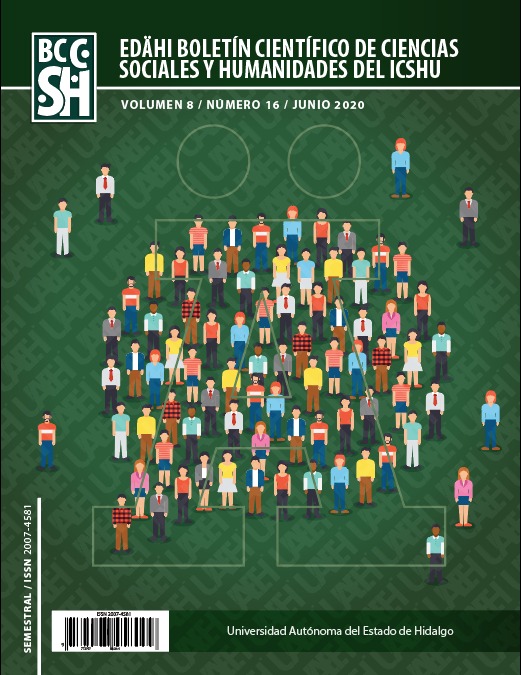Professional ethics at the university: Tensions in the development of an ethical-political individual
Abstract
Teaching professional ethics is part of the everyday actions and interactions of formal and informal institutions. The objective of this paper is to discuss the teaching process of professional ethics at the university; for that purpose, we propose some dilemmas, problems and questions to foster the debate. We base on two important assumptions: a) every educational action has a moral dimension and b) the teaching of ethics must be directed to the development of an ethical-political individual. We highlight the important of assuming this task with responsibility, choosing relevant contents, developing different and original strategies, and avoiding the routinization of teaching practices; above all, teachers must reflect on the different consequences of creating ethical-political subjects, who exercise their profession for the benefit of society.
Downloads
References
Arteaga, Marlene (2005). Modelo tridimensional de transversalidad. Investigación y Postgrado, 20 (2) 241 – 274. Recuperado de http://www.redalyc.org/articulo.oa?id =65820209
Asociación Médica Mundial (1964). Declaración de Helsinki. Recuperado de: https://www.um.es/documents/7232477/7272232/declaracion_de_helsinki.pdf/643a79f0-980d-4a95-a442-5fb1dee81548
Bandura, Albert (1987). Pensamiento y Acción: fundamentos sociales. Barcelona (España): Martínez Roca
Beauchamp, Tom y Childress, James (2001). Principles of Biomedical Ethics. New York: Oxford University Press.
Bolívar, Antonio (2005). El lugar de la ética profesional en la formación universitaria. Revista Mexicana de Investigación Educativa, 10 (24), 93 – 123. Recuperado de http://comie.org.mx/documentos/rmie/v10/n24/pdf/rmiev10n24scB06n01es.pdf
Celia, Adriana y Vera, Gumersindo (2016). La Indiferencia También Enseña. Ponencia presentada en el II Congreso de la Red Iberoamericana de Investigadores en Ética y Responsabilidad Social Universitaria. Instituto de Investigaciones sobre la Universidad y la Educación (IISUE) de la Universidad Nacional Autónoma de México
Comisión Nacional para la Protección de los Sujetos Humanos de Investigación Biomédica y del Comportamiento (1979). Informe Belmont. Recuperdo de : http://www.bioeticayderecho.ub.edu/archivos/norm/InformeBelmont.pdf
Cortina, Adela (2006). Universalizar la aristocracia: por una ética de las profesiones. Claves de razón práctica, Revista Cultural de Santander, 1, 54 – 65. Recuperado de http://revistas.uis.edu.co/index.php/revistasantander/article/view/2186/2547
Cullen, Carlos (2009). Entrañas Éticas de la Identidad Docente. Buenos Aires Argentina: La Crujía
Dubet, François (2006), El declive de la institución. Profesiones, sujetos e individuos ante la Reforma del Estado, Gedisa, Barcelona.
Fuentes, Duilio y Revilla, Diana (2007). Acreditación de comités de ética en investigación como parte de un proceso. Anales de la Facultad de Medicina, 68 (1), 67 – 74. Doi https://doi.org/10.15381/anales.v68i1.1241
Hirsch, Ana (2014). Formación en ética profesional para estudiantes universitarios. En A. Hirsch y R. López (Coords.), Ética Profesional en Educación Superior: Finalidades, estrategias y desafíos de la formación. (pp. 39 – 58). Sinaloa: Universidad Autónoma
Hortal, Alonso, A. (2002). Ética General de las Profesiones. Bilbao: Desclée De Brower
Izarra, Douglas (2016). Experiencias para la formación en valores de docentes estudiantes de postgrado. En D. Izarra Vielma (Coord.), Experiencias y Perspectivas en Ética Profesional y Responsabilidad Social Universitaria en Iberoamérica (pp. 13 – 29). Recuperado de http://ciegc.org.ve/2015/wp-content/uploads/2016/05/%C3% 89tica-y-RSU.pdf
López, Mery (2014). Construyendo Ciudadanos: educación, ciudadanía y convivencia en Venezuela. Mérida: Universidad de Los Andes – Consejo de Publicaciones
Luengo, Julián y Molina-Pérez, Javier (2019). Construyendo la resistencia profesional en un espacio educativo neoliberalizado. Educatio Siglo XXI, 37 (1) 57 – 75. Doi https://doi.org/10.15366/reice2020.18.2.003
Molina, Denyz (2007). Ejes transversales en el currículo universitario: experiencia en la carrera de derecho. Ciências & Cognição, 10, 132-147. Recuperado de: http://pepsic.bvsalud.org/scielo.php?script=sci_arttext&pid=S1806-58212007000100013&lng=pt&tlng=pt.
Monereo, Carles (2007). Hacia un nuevo paradigma del aprendizaje estratégico: el papel de la medicación social, del self y de las emociones. Revista Electrónica de Investigación Psicoeducativa, 5 (3) 497 – 534. Recuperado de http://www.investigacion-psicopedagogica.org/revista/articulos/13/espannol/Art_13_206.pdf
Ricoeur, Paul (2010). Ética y cultura. Buenos Aires: Prometeo Libros / Universidad Católica Argentina.
Rivera, Álvaro (2014). Escenarios para la formación del sujeto ético-político en América Latina. Revista Educación y Desarrollo Social, 8 (1) 162 – 179. Recuperado de: https://revistas.unimilitar.edu.co/index.php/reds/article/view/564
Tribunal Internacional de Núremberg (1947). Código de Núremberg. Recuperado de http://www.bioeticanet.info/documentos/Nuremberg.pdf
UNESCO, (2005). Declaración Universal Sobre Bioética y Derechos Humanos. Recuperado de: https://unesdoc.unesco.org/ark:/48223/pf0000142825_spa.page=85
Vygotsky, Lev (1978). El Desarrollo de los Procesos Psicológicos Superiores. Barcelona, (España): Grijalbo.
Yuren, M. Teresa (2003). Tensiones identitarias y ethos profesional. El caso del profesor de formación cívica y ética en la escuela secundaria. En A. Hirsch y R. López (coords.) Ética profesional e identidad institucional (pp. 267-295). Culiacán, México, Universidad Autónoma de Sinaloa.
Yuren, M. Teresa (2005). Ethos y autoformación en los dispositivos de formación de docentes. En M. Yuren, C. Navia y C. Saenger (Coords.) Ethos y Autoformación del Docente. (pp. 19 – 45). España: Ediciones Pomares
Yuren, M. Teresa (2013). Ética profesional y praxis. Una revisión desde el concepto de “agencia”. Perfiles Educativos, XXXV (142) 6 – 14. Recuperado de: https://www.iisue.unam.mx/perfiles/articulo/2013-142-%C3%89tica-profesional-en-la-educacion-superior.pdf











